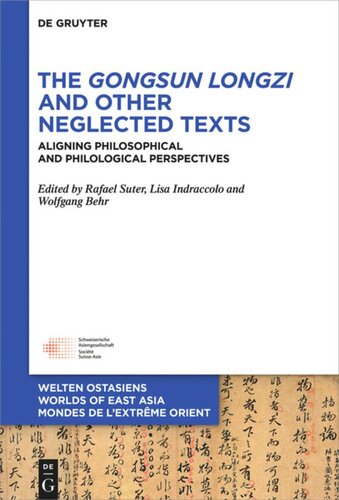

Most ebook files are in PDF format, so you can easily read them using various software such as Foxit Reader or directly on the Google Chrome browser.
Some ebook files are released by publishers in other formats such as .awz, .mobi, .epub, .fb2, etc. You may need to install specific software to read these formats on mobile/PC, such as Calibre.
Please read the tutorial at this link: https://ebookbell.com/faq
We offer FREE conversion to the popular formats you request; however, this may take some time. Therefore, right after payment, please email us, and we will try to provide the service as quickly as possible.
For some exceptional file formats or broken links (if any), please refrain from opening any disputes. Instead, email us first, and we will try to assist within a maximum of 6 hours.
EbookBell Team

4.0
76 reviewsThe Gongsun Longzi is often considered the only extant work of the Classical Chinese “School of Names”, an early intellectual tradition (trad. dated to the 4th cent. B.C.) mainly concerned with logic and the philosophy of language.
The Gongsun Longzi is a heterogeneous collection of five chapters that include short treatises and largely fictive dialogues between an anonymous persuader and his opponent, which typically revolve around a paradoxical claim. Its value as a testimony to Early Chinese philosophy, however, is somewhat controversial due to the intricate textual history of the text and our limited knowledge about its intellectual backgrounds.
This volume gathers contributions by leading specialists in the fields of Classical Chinese philosophy, philology, logic, and linguistics. Besides an overview of the scholarly literature on the topic and a detailed account of the reception of the text throughout time, it presents fresh insights into philological and philosophical problems raised by the Gongsun Longzi and other closely-related texts equally attributed to the “School of Names”.